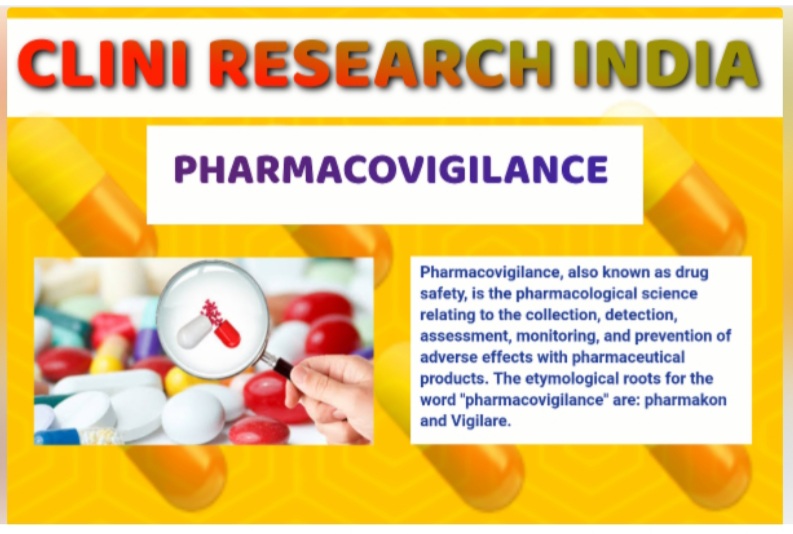PHARMACOVIGILANCE
With an intent to improve public health, the field of Medicine is growing day by day in terms of new information, research, techniques, drugs, etc. However, there are pros and cons which come as a result of such improvisations, for example, the medicines may lead to an adverse reaction in the patients which may sometimes lead to death. Hence, it is important to improve the patient's safety in terms of the use of medicines and this brings us to the topic of Pharmacovigilance.
Pharmacovigilance, also known as drug safety, is the pharmacological science relating to the collection, detection, assessment, monitoring, and prevention of adverse effects with pharmaceutical products. The etymological roots for the word "pharmacovigilance" are pharmakon and Vigilare.
IMPORTANCE OF PHARMACOVIGILANCE:
• Improve patient care and safety
• Improve public health and safety
• Promote education and clinical training
• Early detection of unknown safety problems
• Detection of an increase in the frequency of (known) adverse reactions
• Identification of risk factors and the possible mechanism underlying adverse reactions
SKILLS REQUIRED:
• Attention to detail.
• Scientific accuracy.
• Good communication and coordination with various people involved in the process.
• To use a well-planned search strategy relevant keywords and reliable sources.
• Know the target audience and write at a level appropriate to the target audience.
• Ability to understand the purpose and requirements of the project.
• Comprehensive writing skills with good command of English.
• Know basic about MS Excel, MS Word.
ELIGIBILITY:
Life science, MBBS, BDS, BPT, MPT, BSc, MSc, Biostatistics, Bioinformatics, B Pharm, M Pharm, Graduate’s, and Post Graduates.
PROGRAM STRUCTURE:
MODULE 1: INTRODUCTION TO CLINICAL RESEARCH
MODULE 2: NEW DRUG DEVELOPMENT
MODULE 3: DESIGNING CLINICAL TRIALS
MODULE 4: INTRODUCTION OF PHARMACOVIGILANCE
MODULE 5: HISTORY OF PHARMACOVIGILANCE
MODULE 6: IMPORTANCE OF PHARMACOVIGILANCE
MODULE 7: PHARMACOVIGILANCE PROGRAM IN INDIA
MODULE 8: UPPSALA MONITORING CENTER
MODULE 9: ADR REPORTING (SUSAR, PSUR, DSUR)
MODULE 10: MedDRA CODING
MODULE 11: METHODS OF PHARMACOVIGILANCE
MODULE 12: CLASSIFICATION OF ADRS
MODULE 13: DETAILED STUDY OF ADR, AE, AND SAE
MODULE 14: CAUSALITY ASSESSMENT
MODULE 15: PV WORK PROCESS
MODULE 16: POST MARKETING SURVEILLANCE
MODULE 17: OVERVIEW OF ARGUS SAFETY PROCESS
MODULE 18: PERSONALITY DEVELOPMENT AND COMMUNICATION SKILLS
MODULE 19: LIVE PROJECTS BY INDUSTRY EXPERTS

